Press Releases
Valvoline Instant Oil Change (VIOC) system-wide same-store sales (SSS) grow 7.9 percent, Core North America premium mix increases 350 basis points and International volume grows 5 percent
• Reported net income of $56 million, reported earnings per diluted share (EPS) of $0.27; adjusted EPS of $0.34 which excludes $13 million of after-tax separation costs
• Reported operating income of $104 million; EBITDA from operating segments (Core North America, Quick Lubes and International) of $112 million, exceeding the company's quarterly guidance
• Lubricant volume up slightly from prior year at 46 million gallons
• VIOC system-wide same-store sales growth of 7.9 percent
• Repurchased 2.2 million shares for $50 million
• Narrows full-year adjusted EPS guidance to $1.37-$1.40 and raises free cash flow guidance to $160-$180 million
• Announces intention to make a $400 million voluntary contribution to its U.S. qualified pension plan
LEXINGTON, Ky., August 1, 2017 – Valvoline Inc. (NYSE: VVV), a leading supplier of premium branded lubricants and automotive services, today reported financial results for the third fiscal quarter ended June 30, 2017. The third quarter was highlighted by the final separation from Ashland on May 12, 2017, when Ashland distributed all of its 170 million share ownership in Valvoline to its shareholders.
Valvoline delivered EBITDA from operating segments of $112 million, higher than the company's guidance for the quarter. These better than expected results were driven by strong SSS in VIOC, growth in premium product mix and continued volume gains in international markets.
Rising base oil costs were a headwind during the quarter; however, pricing and other actions have been implemented to offset these increases. The company expects to see unit margin improvement in the fourth quarter with the full benefit of these actions realized by the start of the new fiscal year. EBITDA from operating segments declined $8 million as compared to the prior year period, with benefits from volume and mix offset by increased raw material costs and increased SG&A, partially due to stand-alone public company costs.
Adjusted third-quarter earnings excluded $13 million of after-tax separation costs. Prior-year results had no adjusting items. Diluted EPS was $0.27 and adjusted EPS for the quarter was $0.34. The weighted average diluted shares outstanding of 204 million reflect both the repurchase of shares during the quarter and Valvoline stock-based compensation awards that previously were to be settled in Ashland shares.
All comparisons in this news release are versus the third quarter of fiscal year 2016, unless otherwise stated. To aid in the understanding of Valvoline's ongoing business performance, certain items are presented on an adjusted basis. For a reconciliation of non-GAAP measures (which are defined in the paragraph "Use of Non-GAAP Measures"), refer to tables 4, 7, 8 and 9 in this news release.
"The quarter reflected solid execution against a number of our core priorities, namely strong same-store sales growth for VIOC, solid volume gains in International, and continued premium penetration and DIY market share growth in Core North America. In addition, we demonstrated our commitment to disciplined capital management by returning excess capital to shareholders through the repurchase of Valvoline shares," said Chief Executive Officer Sam Mitchell.
"I continue to be confident in our ability to protect unit margins and fully expect to see progress in Q4, positioning us well across our operating segments as we enter the new fiscal year."
Operating Segment Results
Core North America
• Lubricant volume declined 3% to 25.8 million gallons, branded volume increased 1%
• Branded premium mix increased 350 basis points to 45.0%
• Operating income and EBITDA each declined $10 million, to $48 million and $52 million respectively
Core North America branded volumes grew 1 percent in the quarter, offset by the decline of lower-margin non-branded business that led to the overall volume decrease for the segment. The lag between raw material cost increases and planned price increases had a significant year-over-year impact on the segment's profitability with a favorable impact in prior year and a negative impact this year. This lag, along with planned increases in SG&A, contributed to the decline in EBITDA.
The segment continued to drive growth of premium product sales with premium mix increasing 350 basis points to 45.0 percent of branded volume. This increase was the result of Valvoline's share gains in the DIY channel as well as a general industry trend toward premium products.
Quick Lubes
• VIOC SSS increased 7.9% overall, 6.9% for company-owned and 8.3% for franchised stores
• Operating income grew 6% to $34 million, EBITDA grew 11% to $40 million
• VIOC ended the quarter with 1,113 stores overall, an increase of 5 during the period and 58 over prior year
The Quick Lubes operating segment had another strong quarter overall, reflecting continuous improvements to the company's retail model. Growth in SSS was due primarily to an increase in the number of transactions during the quarter. The increase was driven by strong store-level execution, the continued strengthening of existing marketing programs and the launch of an advertising campaign focused on new customer acquisition.
Volume and EBITDA growth were driven by same-store sales and the addition of 58 net new stores.
International
• Lubricant volume grew 5% to 14.6 million gallons, 7% including unconsolidated joint ventures
• Operating income and EBITDA each declined $2 million, to $18 million and $20 million, respectively
The International operating segment continued its trend of volume growth across both emerging and mature markets, the result of ongoing market penetration from a combination of channel development, brand building and improved product and service offerings in key markets.
Segment EBITDA was impacted by the negative price-cost lag effect year over year from rising raw material costs as well as planned increases in SG&A.
Balance Sheet and Cash Flow
• Total debt of $733 million
• Net debt of $601 million
• Year-to-date cash provided by operating activities was $157 million, which includes cash interest and pension contributions attributable to the new capital structure in fiscal 2017.
Pension Contribution
Valvoline is taking action to reduce risk and long-term volatility of its underfunded pension obligations by making an approximate $400 million voluntary contribution to its U.S. qualified pension plan. Debt will be issued to pay for the funding. Overall, the amount of balance sheet obligations will not change.
A contribution at this time is a strategic opportunity based on the current interest rate environment, scheduled Pension Benefit Guaranty Corporation (PBGC) premium rate increases and potential future changes to the U.S. tax code. The cost savings related to lower PBGC premiums makes this transaction net-present value positive.
Fiscal 2017 Outlook
The company has narrowed or revised a few of its key guidance metrics for fiscal year 2017. Valvoline now anticipates diluted adjusted EPS of $1.37-$1.40, which includes one penny due to additional interest expense attributable to the planned debt issuance to fund the pension contribution. The free cash flow guidance increases to $160-$180 million, including the cash tax benefit of the pension funding. Full-year EBITDA from operating segments is now expected to be
$444-$450 million.
"As we finish up fiscal 2017, I am pleased with the performance of the business," Mitchell said. "We've faced significant raw material cost increases since the beginning of the calendar year, but our teams have delivered against our earnings expectations and we plan to end the fourth quarter in line with our full-year earnings guidance.”
*See chart of Prior Outlook vs. Updated Outlook at http://investors.valvoline.com/news/news-details/2017/Valvoline-Inc-Reports-Third-Quarter-Fiscal-2017-Results-in-Line-with-Guidance/default.aspx*
Conference Call Webcast
Valvoline will host a live audio webcast of its third-quarter fiscal 2017 conference call at 11 a.m. ET on Wednesday, August 2, 2017. The webcast and supporting materials will be accessible through Valvoline's website at http://investors.valvoline.com. Following the live event, an archived version of the webcast and supporting materials will be available for 12 months.
Initial Public Offering (IPO) and Basis of Presentation
In September 2016, in connection with the IPO, Ashland Inc. contributed the capital stock of its business unit Valvoline to Valvoline Inc. Prior to this time, Ashland held substantially all of the assets and liabilities related to Valvoline’s current business.
The financial statements for periods presented prior to the IPO were prepared on a stand-alone basis, derived from Ashland’s consolidated financial statements and accounting records using the historical results of operations, and assets and liabilities attributed to Valvoline’s operations, including allocations of expenses from Ashland. For periods following the IPO, Valvoline was transferred various assets and liabilities from Ashland and has been operating as a stand-alone business with arms-length transition service agreements with Ashland. On May 12, 2017, Ashland distributed all of its remaining interest in Valvoline to Ashland stockholders, marking the completion of Valvoline's separation from Ashland.
Our consolidated and segment results for periods prior to the IPO are not necessarily indicative of our future performance and do not reflect what our financial performance would have been had we been a stand-alone public company during the periods presented.
Use of Non-GAAP Measures
Valvoline has included within this news release several non-GAAP measures, on both a consolidated and reportable segment basis, which are not defined within U.S. GAAP and do not purport to be alternatives to net income or cash flows from operating activities as a measure of operating performance or cash flows. The following are the non-GAAP measures management has included and how management defines them:
• EBITDA, which management defines as net income, plus income tax expense (benefit), net interest and other financing expenses, and depreciation and amortization;
• Adjusted EBITDA, which management defines as EBITDA adjusted for losses (gains) on pension and other postretirement plans remeasurement, net gain (loss) on acquisitions and divestitures, impairment of equity investment, restructuring, other income and (expense) and other items (which can include costs related to the Separation from Ashland, pro forma impact of significant acquisitions or divestitures, or restructuring costs);
• Free cash flow, which management defines as operating cash flows less capital expenditures and certain other adjustments as applicable; and
• Adjusted net income, which management defines as net income adjusted for certain key items impacting comparability and adjusted earnings per share which calculates earnings per share using adjusted net income.
These measures are not prepared in accordance with U.S. GAAP, contain management’s best estimates of cost allocations and shared resource costs. Management believes the use of non-GAAP measures on a consolidated and reportable segment basis assists investors in understanding the ongoing operating performance of Valvoline’s business by presenting comparable financial results between periods. The non-GAAP information provided is used by Valvoline’s management and may not be comparable to similar measures disclosed by other companies, because of differing methods used by other companies in calculating EBITDA, Adjusted EBITDA, free cash flow and Adjusted net income. EBITDA, Adjusted EBITDA, free cash flow and Adjusted net income provide a supplemental presentation of Valvoline’s operating performance on a consolidated and reportable segment basis.
Adjusted EBITDA generally includes adjustments for unusual, non-operational or restructuring related activities. Valvoline’s condensed consolidated financial statements include actuarial gains and losses for defined benefit pension and other post-retirement benefit plans recognized annually in the fourth quarter of each fiscal year and whenever a plan is determined to qualify for a re-measurement during a fiscal year. Actuarial gains and losses occur when actual experience differs from the estimates used to allocate the change in value of pension and other post-retirement benefit plans to expense throughout the year or when assumptions change, as they may each year. Significant factors that can contribute to the recognition of actuarial gains and losses include changes in discount rates used to remeasure pension and other post-retirement obligations on an annual basis or upon a qualifying re-measurement, differences between actual and expected returns on plan assets and other changes in actuarial assumptions, for example the life expectancy of plan participants. Management believes Adjusted EBITDA, which includes the expected return on pension plan assets and excludes both the actual return on pension plan assets and the impact of actuarial gains and losses, provides investors with a meaningful supplemental presentation of Valvoline’s operating performance.
Management believes these actuarial gains and losses are primarily financing activities that are more reflective of changes in current conditions in global financial markets (and in particular interest rates) that are not directly related to the underlying business and that do not have an immediate, corresponding impact on the compensation and benefits provided to eligible employees and retirees.
Management uses free cash flow as an additional non-GAAP metric of cash flow generation. By deducting capital expenditures, management is able to provide a better indication of the ongoing cash being generated that is ultimately available for both debt and equity holders as well as other investment opportunities. Unlike cash flow from operating activities, free cash flow includes the impact of capital expenditures, providing a more complete picture of cash generation. Free cash flow has certain limitations, including that it does not reflect adjustments for certain non-discretionary cash flows, such as allocated costs and mandatory debt repayments. The amount of mandatory versus discretionary expenditures can vary significantly between periods. Valvoline’s results of operations are presented based on Valvoline’s management structure and internal accounting practices. The structure and practices are specific to Valvoline; therefore, Valvoline’s financial results, EBITDA, Adjusted EBITDA, Adjusted net income and free cash flow are not necessarily comparable with similar information for other comparable companies. EBITDA, Adjusted EBITDA, Adjusted net income and free cash flow each have limitations as an analytical tool and should not be considered in isolation from, or as an alternative to, or more
meaningful than, net income and cash flows provided from operating activities as determined in accordance with U.S. GAAP. Because of these limitations, you should rely primarily on net income and cash flows provided from operating activities as determined in accordance with U.S. GAAP and use EBITDA, Adjusted EBITDA, Adjusted net income and free cash flow only as supplements. In evaluating EBITDA, Adjusted EBITDA, Adjusted net income and free cash flow, you should be aware that in the future Valvoline may incur expenses similar to those for which adjustments are made in calculating EBITDA, Adjusted EBITDA, Adjusted net income and free cash flow. Valvoline’s presentation of EBITDA, Adjusted EBITDA, Adjusted net income and free cash flow should not be construed as a basis to infer that Valvoline’s future results will be unaffected by unusual or non-recurring items.
About Valvoline
Valvoline Inc. (NYSE: VVV) is a leading worldwide producer and distributor of premium-branded automotive, commercial and industrial lubricants, and automotive chemicals. Valvoline ranks as the #2 quick-lube chain by number of stores and #3 passenger car motor oil brand in the DIY market by volume in the United States. The brand operates and franchises more than 1,070 Valvoline Instant Oil Change centers in the United States. It also markets Valvoline lubricants and automotive chemicals; MaxLife lubricants created for higher-mileage engines, SynPower synthetic motor oil; and Zerex antifreeze. Visit www.valvoline.com to learn more.
Forward-Looking Statements
This news release contains forward-looking statements within the meaning of Section 27A of the Securities Act of 1933, as amended, and Section 21E of the Securities Exchange Act of 1934, as amended. All statements, other than statements of historical facts, contained in the news release, including statements regarding our industry, position, goals, strategy, operations, financial position, revenues, estimated costs, prospects, margins, profitability, capital expenditures, liquidity, capital resources, dividends, plans and objectives of management are forward-looking statements. Valvoline has identified some of these forward-looking statements with words such as “anticipates,” “believes,” “expects,” “estimates,” “is likely,” “predicts,” “projects,” “forecasts,” “may,” “will,” “should” and “intends” and the negative of these words or other comparable terminology. In addition, Valvoline™ may, from time to time, make forward-looking statements in its annual report, quarterly reports and other filings with the Securities and Exchange Commission (“SEC”), news releases and other written and oral communications. These forward-looking statements are based on Valvoline’s current expectations and assumptions regarding, as of the date such statements are made, Valvoline’s future operating performance and financial condition, including Valvoline’s future financial and operating performance, strategic and competitive advantages, leadership and future opportunities, as well as the economy and other future events or circumstances. Valvoline’s expectations and assumptions include, without limitation, internal forecasts and analyses of current and future market conditions and trends, management plans and strategies, operating efficiencies and economic conditions (such as prices, supply and demand, cost of raw materials, and the ability to recover raw material cost increases through price increases), and risks and uncertainties associated with the following: demand for Valvoline’s products and services; sales growth in emerging markets; the prices and margins of Valvoline’s products and services; the strength of Valvoline’s reputation and brand; Valvoline’s ability to develop and successfully market new products; Valvoline’s ability to retain its largest customers; achievement of the expected benefits of Valvoline's separation from Ashland; Valvoline’s substantial indebtedness (including the possibility that such indebtedness and related restrictive covenants may adversely affect Valvoline’s future cash flows, results of operations, financial condition and Valvoline’s ability to repay debt) and other liabilities; operating as a stand-alone public company; failure, caused by Valvoline, of Ashland's distribution of Valvoline common stock to Ashland shareholders to qualify for tax-free treatment, which may result in significant tax liabilities to Ashland for which Valvoline may be required to indemnify Ashland; and the impact of acquisitions and/or divestitures Valvoline has made or may make (including the possibility that Valvoline may not realize the anticipated benefits from such transactions or difficulties with integration). These forward-looking statements are also subject to the risks and uncertainties affecting Valvoline that are described in its most recent Form 10-K (including in Item 1A Risk Factors and “Use of estimates, risks and uncertainties” in Note 2 of Notes to Consolidated Financial Statements) filed with the SEC, which is available on Valvoline’s website at http://investors.valvoline.com/sec-filings. In light of these risks, uncertainties and assumptions, the forward-looking events and circumstances discussed in this news release may not occur, and actual results could differ materially and adversely from those anticipated or implied in the forward-looking statements.
You should not rely upon forward-looking statements as predictions of future events. Although Valvoline believes that the expectations reflected in these forward-looking statements are reasonable, Valvoline cannot guarantee that the expectations reflected herein will be achieved. In light of the significant uncertainties in these forward-looking statements, you should not regard these statements as a representation or warranty by Valvoline or any other person that Valvoline will achieve its objectives and plans in any specified time frame, or at all. These forward-looking statements speak only as of the date of this news release. Except as required by law, Valvoline assumes no obligation to update or revise these forward-looking statements for any reason, even if new information becomes available in the future. All forward-looking statements attributable to Valvoline are expressly qualified in their entirety by these cautionary statements as well as others made in this news release and hereafter in Valvoline’s other SEC filings and public communications. You should evaluate all forward-looking statements made by Valvoline in the context of these risks and uncertainties.
Financial results are preliminary until Valvoline's Form 10-Q is filed with the SEC.
TM Trademark, Valvoline or its subsidiaries, registered in various countries
SM Service mark, Valvoline or its subsidiaries, registered in various countries
FOR FURTHER INFORMATION
Investor Relations
Sean T. Cornett
scornett@valvoline.com
Media Relations
Valerie Schirmer
vschirmer@valvoline.com
*See financial statements at http://investors.valvoline.com/news/news-details/2017/Valvoline-Inc-Reports-Third-Quarter-Fiscal-2017-Results-in-Line-with-Guidance/default.aspx*
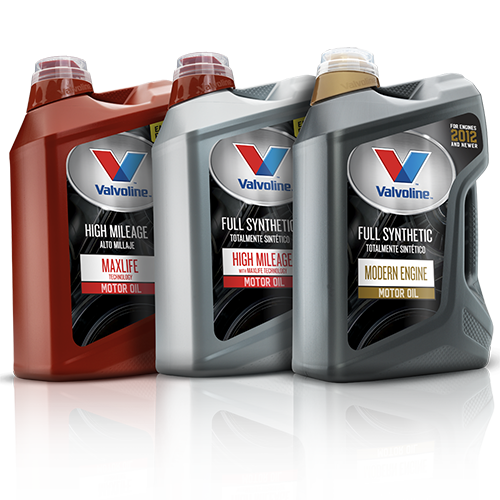 Motor Oil
Motor Oil
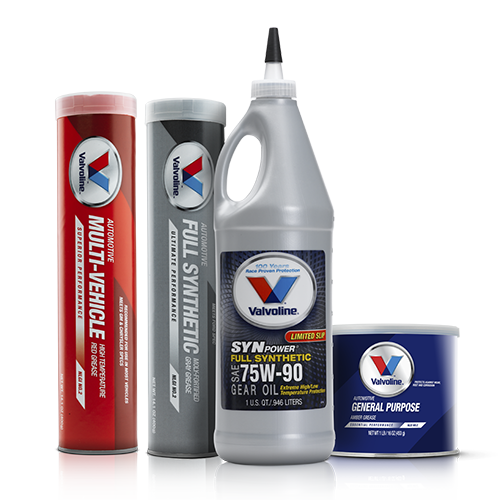 Grease & Gear Oil
Grease & Gear Oil
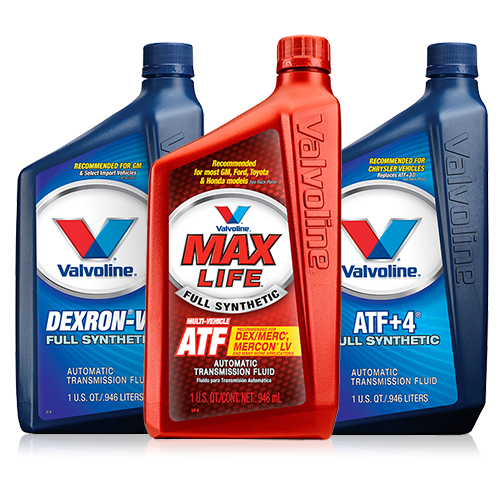 Automatic Transmission
Automatic Transmission
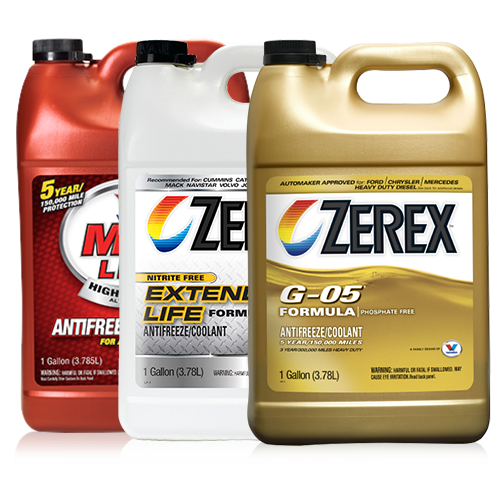 Antifreeze & Radiator
Antifreeze & Radiator
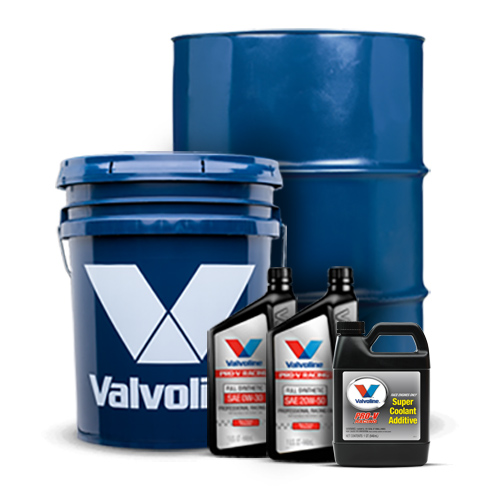 Pro-V Racing
Pro-V Racing
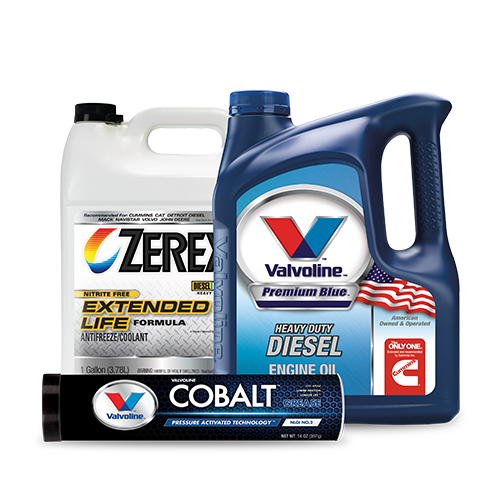 Heavy Duty
Heavy Duty


 Download this Press Release
Download this Press Release